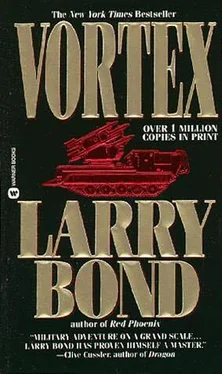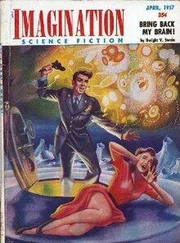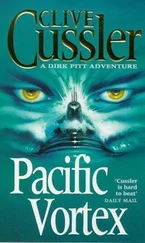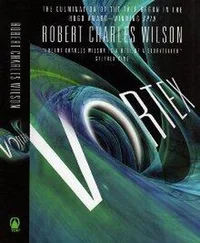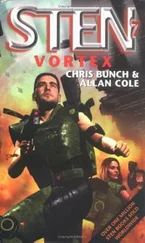“End their cowardly ambushes. Root them out. And then kill them!”
For the first time since entering the room, Diederichs allowed himself a single, short smile.
SEPTEMBER 7-CNN HEADLINE NEWS
The dramatic images from Namibia occupied center stage during CNN’s hourly news recap. “in a visit designed to show the depth of Cuba’s support for
Namibia, Cuban president Fidel Castro today landed in Walvis Bay on a whirlwind tout of the war zone. ” A smiling, cigar-chomping Castro seemed perfectly at home in a sea of military uniforms. His apparent vigor contradicted persistent rumors of ill health, though the bushy, once-brown beard had gone almost completely gray.
The video image showed Castro, with Vega at his side, touring the captured South African port. Several Cubanflagged merchant ships could be seen behind them hurriedly off-loading tanks, planes, and artillery onto Walvis Bay’s long piers. Antiaircraft units and SAM batteries guarded against South African air attack.
The view shifted to show troops in fortifications outside the town, cheering wildly as Castro and his general appeared.
The footage ended with a close-up shot of a jubilant Fidel Castro pumping his clenched fist in the air in triumph.
Castro’s elated image vanished and CNN’s hightech Atlanta studio reappeared.
“In other news from overseas, India’s foreign minister again insisted that Pakistan abandon its covert support for… “
FORWARD HEADQUARTERS, CUBAN EXPEDITIONARY
FORCE, THE STRAND HOTEL, SWAKOPMUND, NAMIBIA
Night had fallen across the Namibian coast.
Thirty kilometers north of Walvis Bay’s ship-choked anchorage, high-ranking Cuban officers again filled the Strand Hotel’s formal dining room. Candlelight gleamed off polished silverware, fine crystal, and shoulder boards crowded with stars. Black waiters and busboys moved from table to table, for once plainly happy in their work. The Strand’s white managers and wine stewards were not happy. They clustered near the kitchen entrance, sour faced and carefully supervised by armed guards.
Outside, the Atlantic surf boomed, sending the hissing, foam-flecked remnants of waves surging onto Swakopmund’s sandy beaches. The infantry squads dug in above the high water mark were all alert-their machine guns, mortars, and other heavy weapons manned and ready. Searchlights mounted on T-62 tanks parked hull-down among the dunes probed out to sea, stabbing through the darkness at precise, timed intervals.
Inside, the assembled officers ate, gossiped, toasted one another, and covertly eyed the two men who sat alone at the head table.
Gen. Antonio Vega toyed with his pastry dish, conscious that Cuba’s president and absolute ruler ate with lip-smacking gusto beside him. He frowned slightly at the sugary and fruit filled concoction. He’d always preferred plainer fare, soldier’s fare-rice and beans, sometimes mixed with a little beef or chicken. Food that satisfied hunger without leaving one lolling about in an overfed stupor. The kind of food you could get in
Cuba-at home.
His leader’s tastes were quite different, and Vega knew better than to try imposing his own culinary views on Fidel Castro. Particularly not when he was about to urge that communist Cuba undertake one of the largest political, military, and strategic gambles in its short history.
Vega sipped his wine, studying the crowded dining room over the rim of his glass. It was an astonishing sight. There were probably more senior
Cuban military men concentrated here in this tiny hotel on Africa’s most desolate coast than there were left in all of Havana.
So many men in fact that the Strand Hotel had been hardpressed to accommodate them all. Vega had gladly turned his quarters over to Castro, but their two staffs had engaged in a very careful assessment of relative ranks before the remaining rooms could be assigned. In the end, several of Swakopmund’s wealthiest burghers had been turned out of their homes to make room for some of the junior officers.
This evening’s dinner had been served in shifts, with the lowest-ranking officers and staff members eating quickly and early, so that the two principals and their higher aides could eat at a fashionable hour, before moving on to the important business at hand.
Important business, indeed, Vega thought, keeping a tight rein on his expression. Castro and his entourage must see only the outer man-calm, cool, collected, and thoroughly professional. The storm of mingled emotions-excitement, nervousness, and joy-that ebbed and flowed inside him had to stay hidden. Marxist-Leninism was a scientific faith, and its true believers were supposed to remain unswayed by sentiment, personal ambition, or petty hatreds.
“Excellent, Antonio. A fitting conclusion to a glorious day.” Castro pushed his empty plate aside and absentmindedly combed his fingers through his beard, brushing away small crumbs and flakes of pastry crust.
Vega lowered the wineglass and inclined his head, acknowledging the compliment.
Castro bent his own head for a moment, puffing one of his trademark cigars alight. Then he looked up, shrewd eyes fixed on Vega’s face.
“You may begin the briefing, General. Medals and propaganda films have their own time and place, but now we must contemplate the next steps in this war. And as the saying goes, the wise man makes sure his shoes are tied before setting out on any journey. “
Vega smiled. As always, Castro knew how to get to the heart of the matter.
Vega nodded to one of his hovering staff officers, who in turn motioned to the cadre of young lieutenants stationed at the door.
Instantly, they spread through the room-shepherding the waiters and other hotel workers outside. The low buzz of conversation from the other tables died away as several more junior officers brought in a large, cloth-covered easel.
Vega’s senior intelligence officer, Col. Jaume Vasquez, stepped forward and stood near the easel. Vasquez, a short, slender man with an aristocrat’s high cheekbones and long, thin nose, seemed to have taken special pains with his appearance this evening. Every crease on his tailored dress uniform hung razor-sharp and his polished black shoes gleamed brightly.
Only the faint sheen of nervous perspiration on his forehead marred the image of absolute perfection.
Vega sympathized with the colonel’s case of nerves. Few men ever stood so close to one of history’s great turning points. it still felt strange to realize that the whole course of a war and the very future of several nations would be determined here, in the rustic dining room of a small hotel off in the middle of nowhere.
The intelligence officer waited in silence until the dining room doors closed firmly-shutting out curious junior staffers and potential spies alle.
Vasquez pulled away the cloth covering his easel, revealing a map of northern and central Namibia. Red lines and arrows showed the current situation facing Cuba’s Expeditionary Force.
“Senor Presidente, SefJor
General, the battlefront has stabilized along an east-west line running from Walvis Bay to Windhoek to the village of Gobabis, here. ” He tapped the map, pointing out a small town near Namibia’s border with
Botswana.
“The enemy’s main force remains concentrated near the passes leading to Windhoek. Radio intercepts, prisoner interrogations, and air reconnaissance all indicate the presence of at least one mechanized brigade around the town of Rehoboth. “
Vasquez ran a lean, manicured finger up the highway north from Rehoboth, stopping at a tiny dot.
“This represents the deepest South African penetration into the Auas Mountains. One battalion holding the village of Bergland. All available evidence indicates that the South Africans periodically rotate troops forward to this area from their staging base at Rehoboth.
Читать дальше
